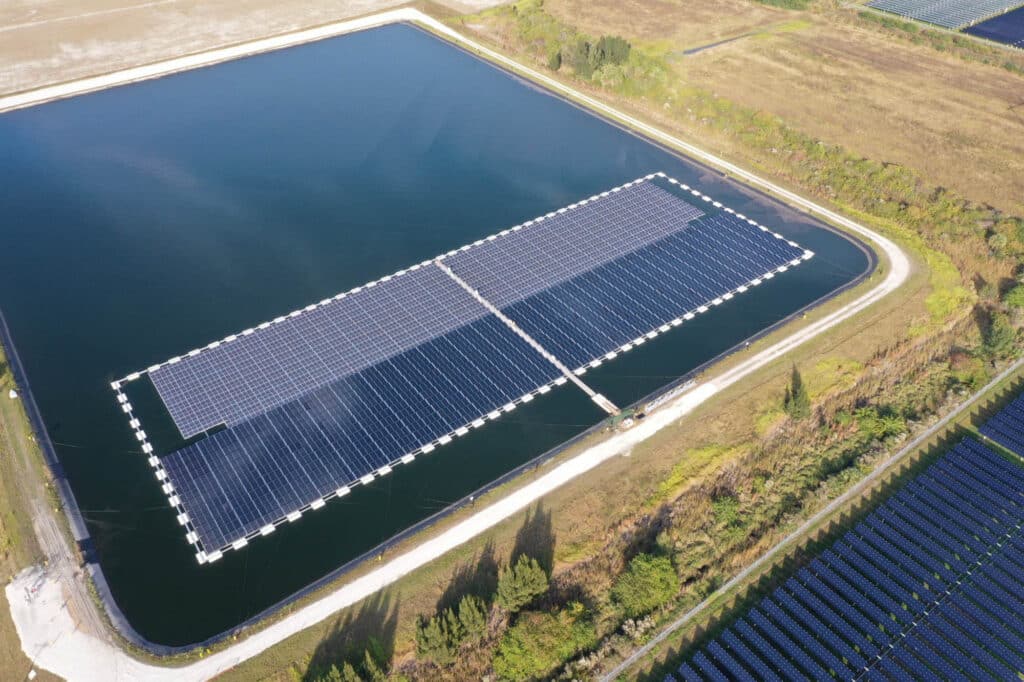A solar revolution is happening, and it’s taking to the water. But for this remarkable technology to thrive, it needs a foundation that’s as unyielding as the sun itself. That’s where AccuSolar’s floating solar platforms come in, and at the heart of our innovation is one extraordinary material used to build the floats: HDPE. If you’re wondering what is HDPE and why it matters for solar technology, this guide will explain everything you need to know.
Imagine a material that effortlessly combines strength, stability, and sustainability. That’s the power of high-density polyethylene (HDPE). It’s not just a material; it’s the very soul of our platforms, providing a lightweight yet robust foundation that can withstand the harshest aquatic environments. We’ve chosen HDPE not only for its incredible durability but also for its eco-friendly nature, ensuring our platforms are a responsible choice for a greener future. But what exactly is HDPE and why is it the material of choice?
What Is HDPE?
Known for its high strength-to-density ratio, HDPE is incredibly strong yet lightweight.
This is a crucial combination for any buoyant structure. Its linear molecular structure allows for tight packing.
This gives it the rigidity and impact resistance needed to withstand waves, currents, and other environmental stresses.
This durability is matched by its resistance to corrosion, chemicals, and moisture. This ensures that floating platforms will not degrade when exposed to saltwater or other harsh marine conditions. This is why HDPE plays such a critical role in how floating solar farms are constructed.
Why High-Density Polyethylene Is the Perfect Fit for Floating Solar Platforms
Tough Enough for the Elements
Waves, wind, scorching sun—HDPE takes them all in stride without cracking, warping, or fading. Its molecular structure is built for the long haul, with an expected 25–30-year life cycle.
UV and Chemical Resistance
Whether it’s hours of direct sunlight or exposure to algae and water treatments, HDPE holds its shape and strength with proper UV-additives. No rust, no rot, no problem.
Strong Without the Bulk
Impressive strength-to-weight ratio, which means easier transport and installation without sacrificing durability.
Sustainable by Design
Many HDPE products are made from recycled materials. Meaning they can be recycled again at the end of their service life. This makes them as eco-friendly as they are effective, adding to the comprehensive benefits that floating solar panels provide.
Low Maintenance, High Reliability
Forget constant painting, sealing, or anti-corrosion treatments. HDPE platforms keep performing with minimal upkeep, saving both time and money.
The Future of Floating Solar Technology
Floating solar platforms demand a material that’s as resilient as the technology they support. For engineers and developers who are shaping tomorrow’s energy landscape, high-density polyethylene is more than just a preference—it’s a trusted partner that supports the ongoing design innovations that make floating solar the gold standard for renewable energy technology.
Understanding what is HDPE and its applications in renewable energy helps explain why AccuSolar chooses this remarkable material for our floating solar solutions. The combination of durability, sustainability, and performance makes HDPE the ideal choice for long-term solar installations on water.
Ready to Get Started?
Are you ready to elevate your next floating solar project from a vision to a reality? Let AccuSolar show you how our high-performance floating solar solutions, powered by the unmatched resilience of HDPE, can transform your energy goals. Contact us to speak to an expert.





